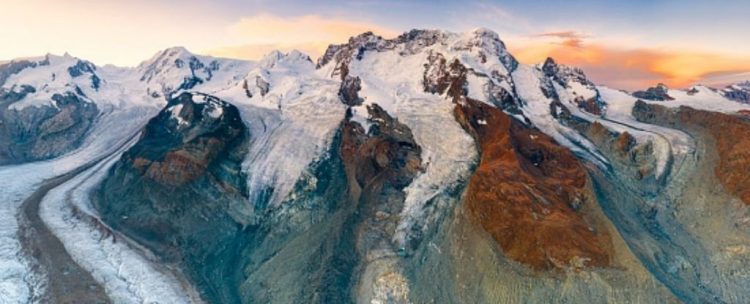Throughout our planet’s history, Earth has fluctuated between a hothouse and an icehouse.
Today, our home is supposed to be in a period of global cooling, but human emissions of greenhouse gasses are reversing that natural trend at a rapid and unprecedented rate.
One of the last times Earth went from an icehouse to a hothouse this quickly and dramatically, about 304 million years ago, our planet experienced major upheaval.
During the Kasimovian–Gzhelian boundary (KGB), atmospheric carbon levels doubled in roughly 300,000 years, from around 350 parts per million to 700 ppm. Now, new research suggests about 23 percent of the seafloor during this time were deprived of oxygen.
The findings are based on a fresh analysis of trace elements in a slab of ancient black shale in South China. The isotopes of carbon and uranium within this rock suggest that on top of global warming, rising sea levels, and melting glaciers, we also need to worry about ocean anoxia.
Anoxia is defined as a lack of oxygen. It can occur with climate change because when ice caps melt and add fresh water to the ocean surface, it obstructs atmospheric oxygen from dissolving and circulating in the sea.
Under extreme anoxic conditions, life in the ocean struggles to survive. Even areas with low oxygen, called hypoxia, are known as ‘dead zones’.
The new results are supported by previous research on ancient bedrock in South China, which found major losses to biodiversity in the sea during the KGB boundary.
When modeling these ancient climate changes, the authors of the current study realized the importance of timing.
“If you raised CO2 by the same amount in a greenhouse world, there isn’t much effect, but icehouses seem to be much more sensitive to change and marine anoxia,” explains sedimentary geochemist Isabel Montañez from the University of California, Davis.
In other words, if human emissions had rapidly increased during a natural period of global warming, instead of global cooling, ocean anoxia wouldn’t be nearly as big a threat.
Perhaps the reason has to do with the fact that greenhouse gasses in a hothouse world are already high, so emissions don’t have as strong a melting effect on ice sheets and permafrost.
But during a period of global cooling, there are more ice sheets and glaciers trapping fresh water, ready to infiltrate the surface of the ocean and obstruct oxygen dissolving.
Researchers suspect the massive release of carbon that caused climate change between 290 and 340 million years ago was probably stimulated by volcanic eruptions.
Extensive wildfires would then have added even more carbon to the atmosphere, as would permafrost melt.
These are just ideas, though. Researchers were unable to trace the exact cause of carbon emissions during the KGB, but their results show a clear spike in greenhouse gas emissions, followed by extensive sea level rise and anoxia.
“Massive carbon release with abrupt warming has occurred repeatedly during greenhouse states, and these events have driven episodes of ocean deoxygenation and extinction,” the authors write.
“Records from these paleo events, coupled with biogeochemical modeling, provide clear evidence that with continued warming, the modern oceans will experience substantial deoxygenation.”
The study was published in PNAS.















